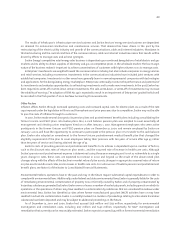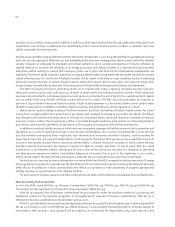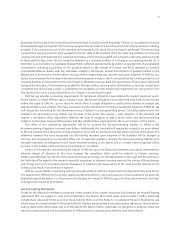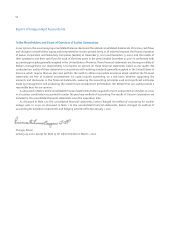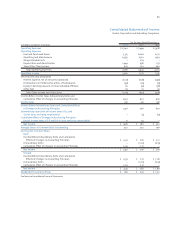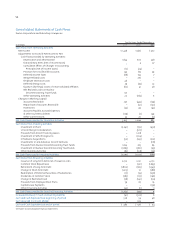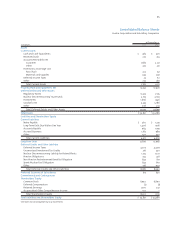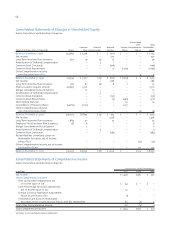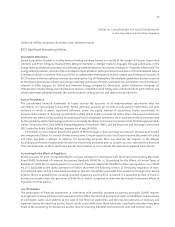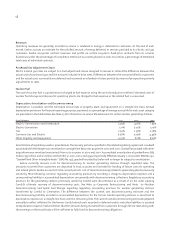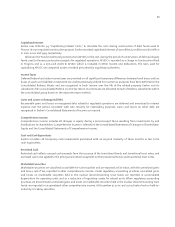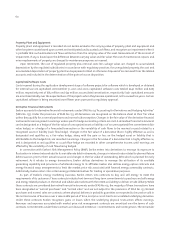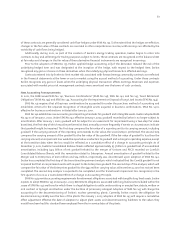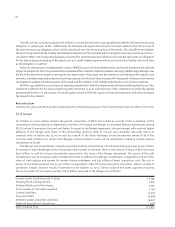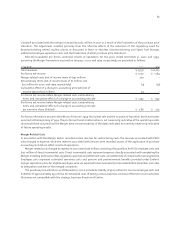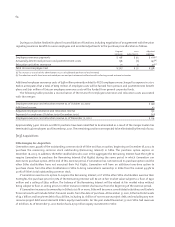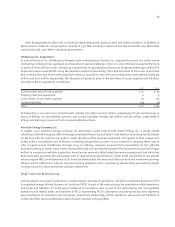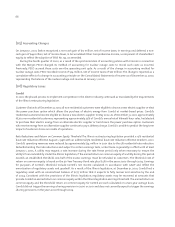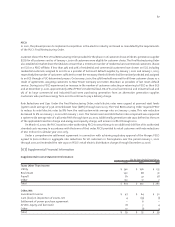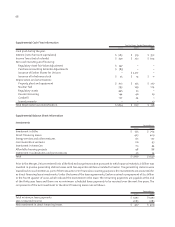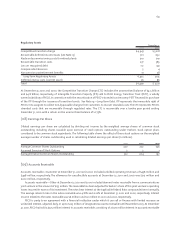ComEd 2001 Annual Report Download - page 61
Download and view the complete annual report
Please find page 61 of the 2001 ComEd annual report below. You can navigate through the pages in the report by either clicking on the pages listed below, or by using the keyword search tool below to find specific information within the annual report.
59
Capitalized Interest
Exelon uses SFAS No. 34, “Capitalizing Interest Costs,” to calculate the costs during construction of debt funds used to
finance its non-regulated construction projects. Exelon recorded capitalized interest of $17 million, $2 million and $6 million
in 2001, 2000 and 1999, respectively.
Allowance for Funds Used During Construction (AFUDC) is the cost, during the period of construction, of debt and equity
funds used to finance construction projects for regulated operations. AFUDC is recorded as a charge to Construction Work
in Progress and as a non-cash credit to AFUDC which is included in Other Income and Deductions. The rates used for
capitalizing AFUDC are computed under a method prescribed by regulatory authorities.
Income Taxes
Deferred Federal and state income taxes are provided on all significant temporary differences between book bases and tax
bases of assets and liabilities. Investment tax credits previously utilized for income tax purposes have been deferred on the
Consolidated Balance Sheets and are recognized in book income over the life of the related property. Exelon and its
subsidiaries file a consolidated Federal income tax return. Income taxes are allocated to each of Exelon’s subsidiaries within
the consolidated group based on the separate return method.
Gains and Losses on Reacquired Debt
Recoverable gains and losses on reacquired debt related to regulated operations are deferred and amortized to interest
expense over the period consistent with rate recovery for ratemaking purposes. Gains and losses on other debt are
recognized in Exelon’s Consolidated Statements of Income as incurred.
Comprehensive Income
Comprehensive income includes all changes in equity during a period except those resulting from investments by and
distributions to shareholders. Comprehensive income is reflected in the Consolidated Statements of Changes in Shareholders’
Equity and the Consolidated Statements of Comprehensive Income.
Cash and Cash Equivalents
Exelon considers all temporary cash investments purchased with an original maturity of three months or less to be
cash equivalents.
Restricted Cash
Restricted cash reflects unused cash proceeds from the issuance of the transitional bonds and transitional trust notes, and
escrowed cash to be applied to the principal and interest payment on the transitional bonds and transitional trust notes.
Marketable Securities
Marketable securities are classified as available-for-sale securities and are reported at fair value, with the unrealized gains
and losses, net of tax, reported in other comprehensive income. Under regulatory accounting practices, unrealized gains
and losses on marketable securities held in the nuclear decommissioning trust funds are reported in accumulated
depreciation for operating units and as a reduction of regulatory assets for retired units. When regulatory accounting
practices are discontinued, unrealized gains and losses on marketable securities held in the nuclear decommissioning trust
funds are reported in accumulated other comprehensive income. At December 31, 2001 and 2000, Exelon had no held-to-
maturity or trading securities.


